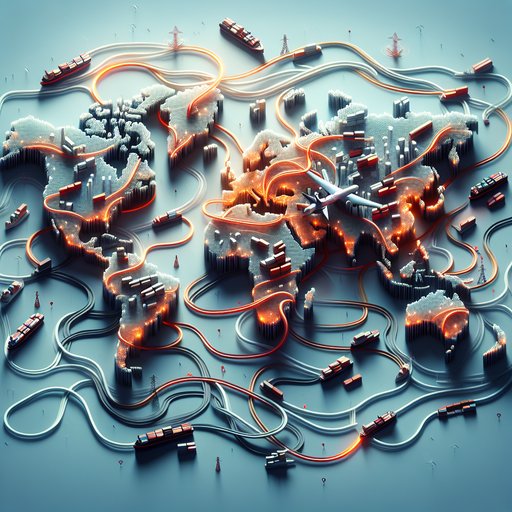
Scientists at Rice University have made a groundbreaking discovery in the field of quantum materials, confirming the existence of previously theoretical "flat bands" in kagome superconductors. This finding could revolutionize the development of future electronic devices, offering potential for more efficient energy transmission and faster computing capabilities [1].

American farmers are grappling with a significant economic challenge as crop prices continue to decline while operational costs surge. The agricultural sector is experiencing mounting pressure from multiple directions, with soybean farmers particularly affected by market conditions, and severe weather events adding to the industry's struggles. This combination of factors is creating ripple effects throughout rural economies across the nation.

A major shakeup at the Centers for Disease Control and Prevention (CDC) has sparked concerns about America's ability to respond to future health emergencies. The dismissal of CDC Director Susan Monarez, along with the resignation of four senior officials, has created what experts are calling a leadership vacuum at the nation's premier public health agency [1].

Recent changes in trade policies and economic pressures are forcing major companies to restructure their supply chains, with significant implications for consumers and businesses alike. From consumer goods to pharmaceuticals, organizations are grappling with new tariff regulations while simultaneously pursuing strategies to enhance supply chain resilience through domestic manufacturing.

In a significant development for ongoing European security efforts, NATO has announced a major new military assistance package for Ukraine, committing an additional $50 billion in aid through the end of 2025 [1]. This substantial commitment comes amid complex political dynamics, including Hungary's legal challenge to EU's use of frozen Russian assets and diverging views among Western allies about the path forward.

In a thrilling showcase of athletic excellence at the Diamond League Final in Zurich, Olympic champions Noah Lyles and Julien Alfred delivered commanding performances that solidified their positions as favorites heading into next month's World Championships. The event featured several dramatic contests and notable achievements, with athletes making their final preparations for the upcoming global championships [1].

Thailand faces a period of political uncertainty after its Constitutional Court removed Prime Minister Paetongtarn Shinawatra from office following controversy over a leaked phone call with Cambodia [1]. The landmark ruling has created immediate questions about leadership succession in Southeast Asia's second-largest economy.

The World Rally Championship continues to break new ground as Finnish driver Kalle Rovanperä (Toyota) has taken the lead in the inaugural Paraguay Rally, marking the championship's first-ever event in the South American nation. The development comes alongside significant expansion in rally sport broadcasting, with Samsung TV Plus now offering live coverage of both WRC and European Rally Championship events to global audiences [1].

Major technology companies are making significant moves in the digital health space, with Apple and Samsung leading the charge in wearable health monitoring innovations. As the healthcare technology landscape evolves, some companies are expanding their offerings while others are strategically retreating, signaling a crucial moment of transformation in the digital health sector.

The U.S. housing market continues to show signs of adjustment as inflation-adjusted house prices remain below their 2022 peak levels. According to recent data, real home prices are now [1], while the price-to-rent index has dropped even more significantly, sitting 9.8% below its 2022 high point. This cooling trend reflects ongoing market adjustments as buyers and sellers navigate the current economic landscape.




























